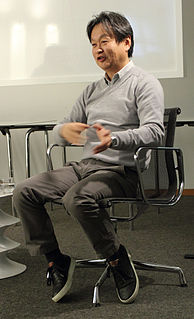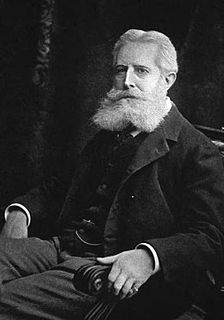A Quote by Theophile Gautier
You do not become a critic until it has been completely established to your own satisfaction that you cannot be a poet.
Quote Topics
Related Quotes
Technique is really personality. That is the reason why the artist cannot teach it, why the pupil cannot learn it, and why the aesthetic critic can understand it. To the great poet, there is only one method of music - his own. To the great painter, there is only one manner of painting - that which he himself employs. The aesthetic critic, and the aesthetic critic alone, can appreciate all forms and all modes. It is to him that Art makes her appeal.
There's lots of room to be your own worse critic. It's just you, so I think that's inherit, that voice that's always that's there monitoring everything you do. It's definitely worse; the critic is harder when it's just you. If you're doing a show, then the critic can blame the other actors your with.
The poet or the revolutionary is there to articulate the necessity, but until the people themselves apprehend it, nothing can happen ... Perhaps it can't be done without the poet, but it certainly can't be done without the people. The poet and the people get on generally very badly, and yet they need each other. The poet knows it sooner than the people do. The people usually know it after the poet is dead; but that's all right. The point is to get your work done, and your work is to change the world.
I find it's very confusing when one critic tells you one thing and one tells you something completely different. Unless all the critics agree on parts of the play that just didn't work. I have stopped reading reviews, because I find writing is all about courage. You must have courage when you start writing a play and you cannot have the voice - you must write things out. You cannot have the voice of a critic telling you, "That didn't work in that play, you cannot make it work in another play." Every time you do a production, it's an experimentation.
When the poet's sentiments are overly visible, the audience may become uncomfortable. Japanese ritual is the opposite. By writing simply and only about what is there, the audience is drawn into the poet's world. Their imagination is stimulated, and a silent connection is established. I believe this is where the most important aspect of the Japanese sense of beauty lies.
Until you become completely obsessed with your mission, no one will take you seriously. Until the world understands that you're not going away-that you are 100 percent committed and have complete and utter conviction and will persist in pursuing your project-you will not get the attention you need and the support you want.
Knowing your own darkness is the best method for dealing with the darkness's of other people. One does not become enlightened by imagining figures of light, but by making the darkness conscious. The most terrifying thing is to accept oneself completely. Your visions will become clear only when you can look into your own heart. Who looks outside, dreams; who looks inside, awakes.
Everybody is looking with his own world of desires, expectations, passions, lust, greed, anger. There are a thousand and one things standing between you and your world; that's why you don't ever see it as it is. Once your eye is completely clean, clean of all the dust, once it becomes a pure mirror, it reflects that which is. And that is truth and truth liberates, but it has to be your own. My truth cannot liberate you, Buddha's truth cannot liberate you. There is only one possibility of liberation, that is your own truth. And all that you have to do is to create a dispassionate eye.







































